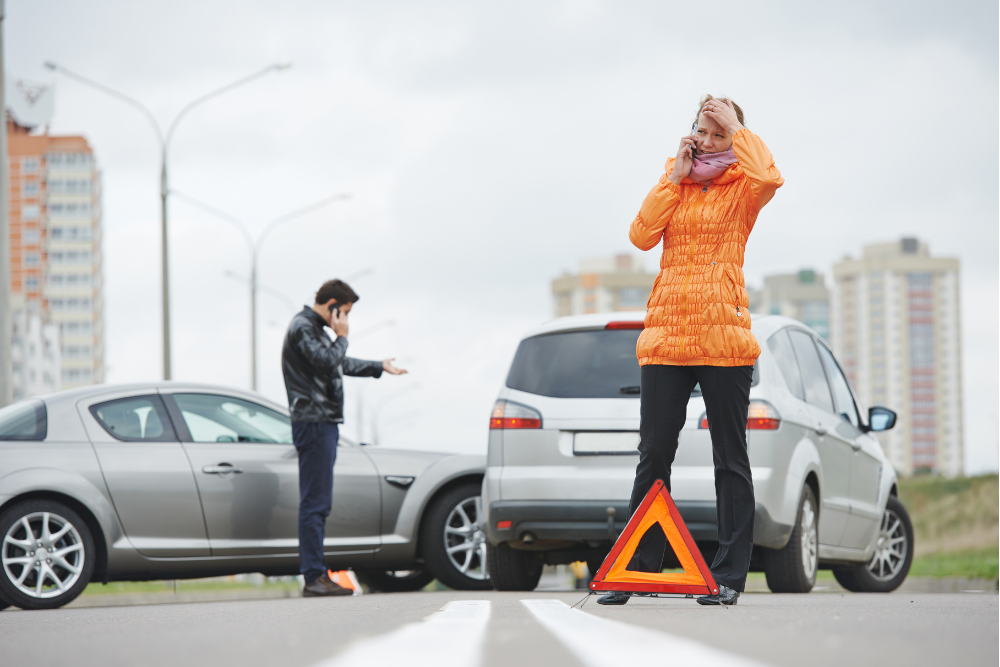
We all hope it never happens. It sucks when it does happen. It can be highly devastating in some cases as well. Being involved in automobile accidents, big or small, makes for a bad day – or worse. When we are in the heat of the moment and adrenaline is running, and our emotions are coming to the surface, it may be challenging to remember all the essential things we should be taking care of when involved in an accident.
I will share five things you want to do when involved in an automobile accident that does not leave you, or the other party incapacitated. This list will cover the most important things to handle when a minor fender bender occurs or an accident that does not result in serious injuries. We share these items with our clients often enough when they are involved in accidents, and we figured those who read this blog post could benefit from them as well – although we hope you won’t need it!
1 – Make sure everyone is OK
You must check with the other parties involved in the accident to ensure they are alright and that no one is injured. This is the first item on the list because it is the most important. Not only does it help put most others at ease during a time that can be very stressful, but it also signals to them that you care about their wellbeing. Anytime you are involved in an accident, do this item first!
2 – Notify the authorities (as long as you are not in a private parking lot)
Yes, I said it. Call the police. There are many reasons you want to do this, whether you were at fault or not. Should someone be unapproachable regarding the incident, having an officer there helps! Not only that, if there were any traffic violations, those individuals could be cited. Most importantly, though, a formal recording of the incident can be taken on an incident report (which will come in handy when filing an insurance claim) no matter who is at fault.
3 – Exchange contact info with the other parties involved
Exchanging information with the other party, either with the officer’s help or on your own with the other parties, helps to have contact info for them should ANYONE need them. Be sure to test the contact info if you can to make sure the information they are giving you is not bogus (I’m being serious – this happens more than you think).
4 – Notify your insurance agent for more guidance
Call them to inform them of what happened to gain some quick guidance (like the guidance here in this article) to help you move forward through your situation as best as possible. Remember, your agent didn’t just sell you a policy and wash his hands of you (we hope). They are your advocate and should be guiding you as needed through the process when needed. (If this does not describe your agent, stop reading this now and contact us to assist you!)
5 – File an insurance claim (based on agent feedback)
Whether you are filing the insurance claim through your carrier or the other party involved, make sure to do it promptly. The more time passes after the incident occurs, the fewer details people will remember and the more they can think about their subsequent actions. Not only that, it is part of your agreement with the insurance carrier to file your insurance claims promptly. Lean on your agent’s feedback to proceed accordingly here.
BONUS – Get other parties to give their statement on the spot (if possible)
I added a bonus for you here because this can be a game-changer! When our clients have been involved in accidents, I have seen them do everything above except get the other party’s statement. They are usually not at fault, they call in the claim to the other party’s carrier, and then the other individual cannot be reached by their insurance carrier for a statement. The entire claim is put on hold or can fizzle out when this happens. Usually, this makes things much harder, or the client has to file the claim through their carrier. Still, there is no guarantee that the coverage they need is on their policy or that their insurance carrier will even successfully subrogate the claim and recover their expenses or the client’s deductible.
Hindsight is always 20/20 (or so they say), but if you happen to catch this article and remember this list of items before your next fender bender, then at the very least, you will be better prepared. Our clients have benefitted from our feedback when we help them this way. We hope that this list was helpful, and we also hope you never need it! But as the saying goes, “never say never.”
